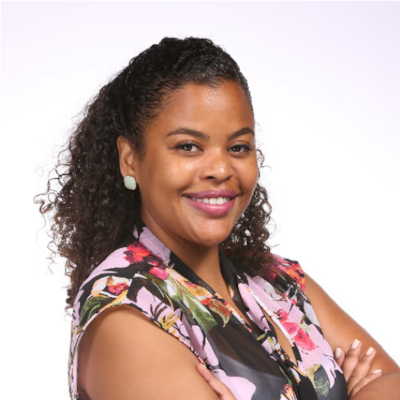When Ashley Virden’s third-grade son was suspended from Tindley Summit Academy in the second week of the school year, she decided she needed to get more involved.
So she began sitting in on his classes. She went to the charter school’s board meetings. She saved contacts in her cell phone for his teachers and principal, asking them to let her know if her son was doing anything that would set off another suspension.
Being more engaged and building relationships helped keep her son on track and focused at school, Virden said — and he ended the year in the top of his class in reading.
“Y’all need to start a parent organization,” Virden told Tindley school leaders at the time.
The Indianapolis mother of three worked with the principal and a lead teacher to launch such a group herself, called Parents and Educators Alongside Kids or PEAK, throwing open classroom doors to families and fostering a stronger community.

Now, Virden, 32, is taking her parent-organizing skills city-wide. On Thursday, prominent local charter advocacy group The Mind Trust announced that Virden won a two-year fellowship to create a nonprofit to engage families in their children’s education and empower them to advocate for changes in their schools.
“The biggest thing I want to focus on is having an organization that doesn’t just rally behind the issues, but rallies behind the assets of their school and each other and parents and guardians,” Virden said. “It’s really important to me to build a community of families that can support each other… so when issues do come, we have a more solid foundation to really address those issues that are impacting our children.”
The effort aims to address a weakness that The Mind Trust acknowledges and Virden doesn’t hesitate to point out — that Indianapolis’ charter movement has been largely top-down, led by notable names but not the communities and families affected.
That dynamic left low-income families and communities of color, in particular, out of the loop as advocates and policymakers orchestrated big changes to schools.
Other institutions have recognized the problem and adjusted. Indianapolis Public Schools officials, for example, noticed they left out community feedback when the district first began partnering with charter operators to run IPS schools, known as “innovation schools,” in 2015. The district has since built that step into the innovation process and has added a new family and community engagement team.
Several years ago, The Mind Trust recruited Stand for Children to Indianapolis to provide parent advocacy training, but the organization is seen by some critics as a highly political group with causes that it champions. Stand for Children Indiana has been supportive of innovation schools, fueling contentious Indianapolis Public Schools board races by backing candidates who favor the controversial innovation strategy.
Brandon Brown, executive director of The Mind Trust, said he doesn’t expect Virden’s group will put money into political campaigns like that. Still, her connection to The Mind Trust could lead to some criticism that her group will be pushing an education reform agenda.
Virden, who is black and lives on the far eastside, said she hopes that by building trusting relationships, she can transcend some of the education politics around school type.
There’s “a tremendous need” for more parent advocacy in the city, said Stand for Children Indiana executive director Justin Ohlemiller, drawing a parallel to how several local organizations work to provide mentoring or address homelessness.
“Obviously, we believe that parents can be a game-changer when it comes to driving improvement in our public schools, especially when it comes to parts of our city that have seen a lot of challenges,” he said.
Virden, who also does community building in her Dubarry Park neighborhood, will have two years to develop her organization. The Mind Trust declined to release her salary but said in January that the fellow would likely make between $75,000 to $90,000 per year plus benefits. The Mind Trust expects to invest more than $500,000 in Virden’s fellowship, through training, trips to meet with grassroots organizers around the country, and a likely start-up grant for her nonprofit.
The Mind Trust has used similar fellowships to launch a common enrollment system and a service center for charter and innovation schools.
Those who selected Virden from the pool of 34 applicants said she brings a fresh voice to the city, a charismatic and sincere presence, and an understanding of how to connect with people.
Virden envisions her group working at a grassroots level across public schools to help parents navigate resources and solve problems such as facing high suspension rates or securing services for students with disabilities.
She’s already familiar to some of the challenges of community organizing, having once passed out 600 flyers to have just five people show up to a meeting. In low-income neighborhoods, families can often be transient, unable to step away from their jobs, or too untrusting to engage in what’s going on in their communities or schools, she said — but that means they get “locked out” of participating.
“The biggest eye-opening thing for me was like, it’s not just my child,” Virden said. “We’re all dealing with the same things, pretty much, but we’re all just operating in our own little spaces and silos and not talking about it, so we think that it’s just our problem.”

